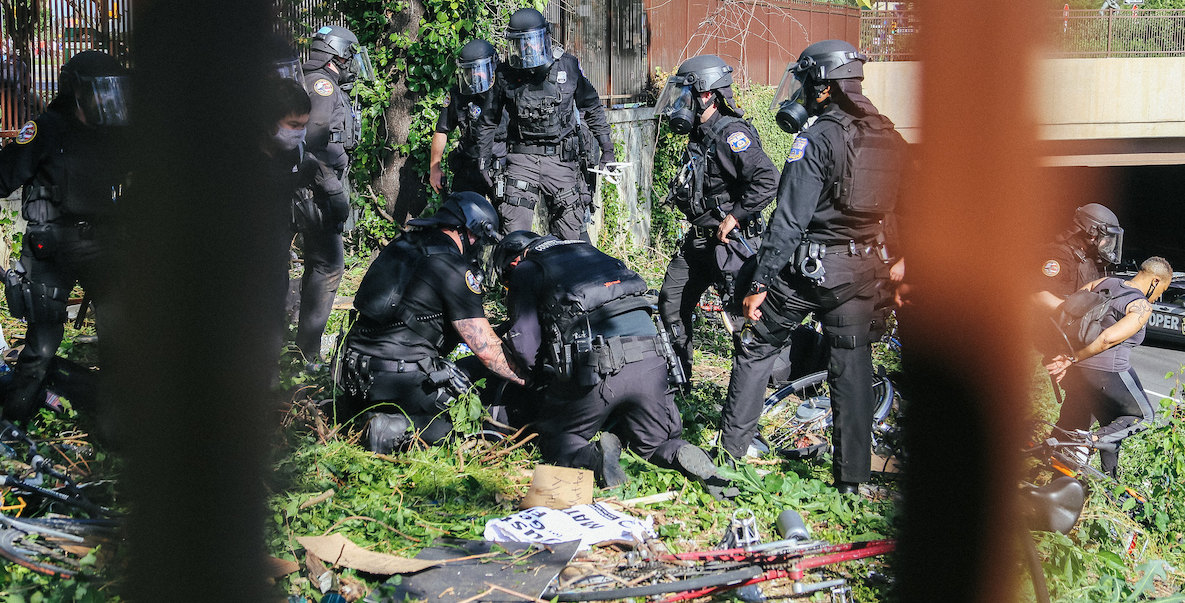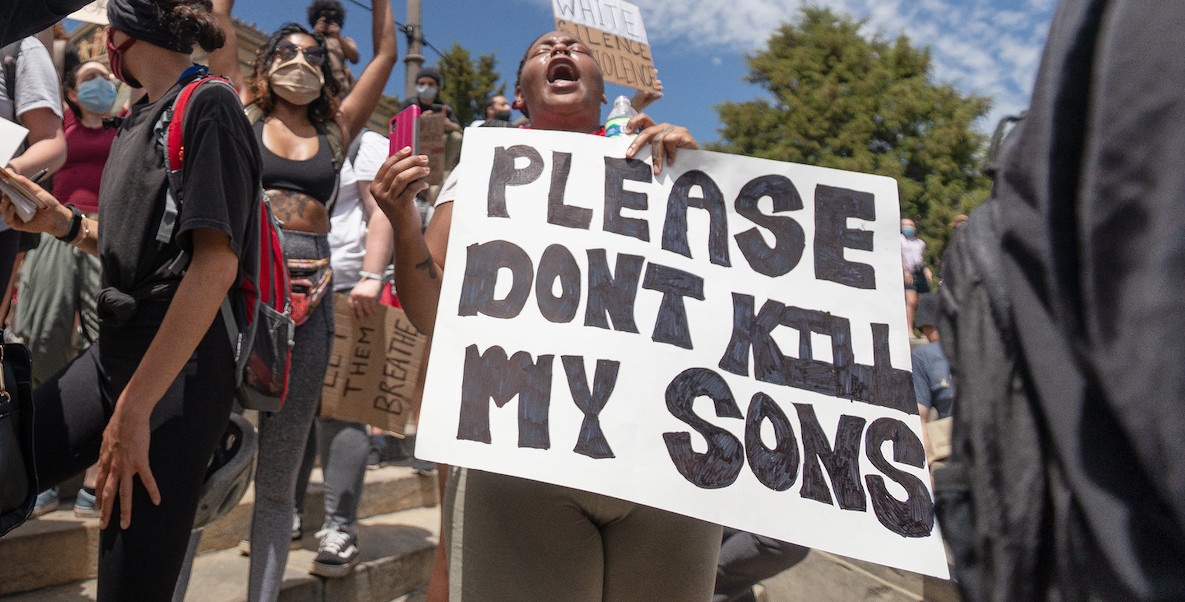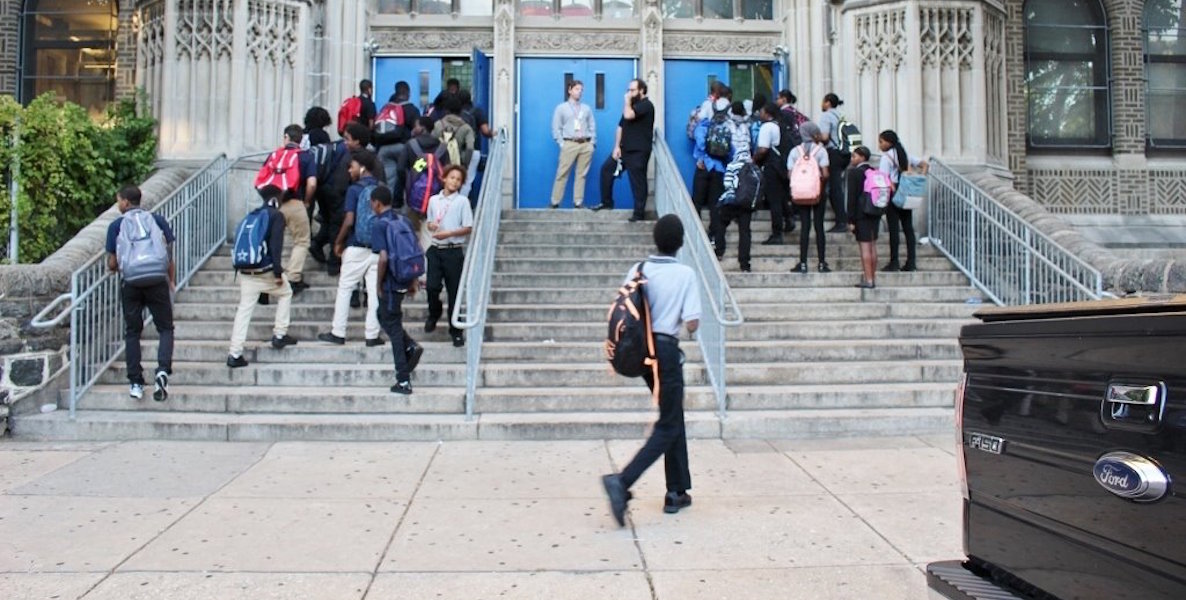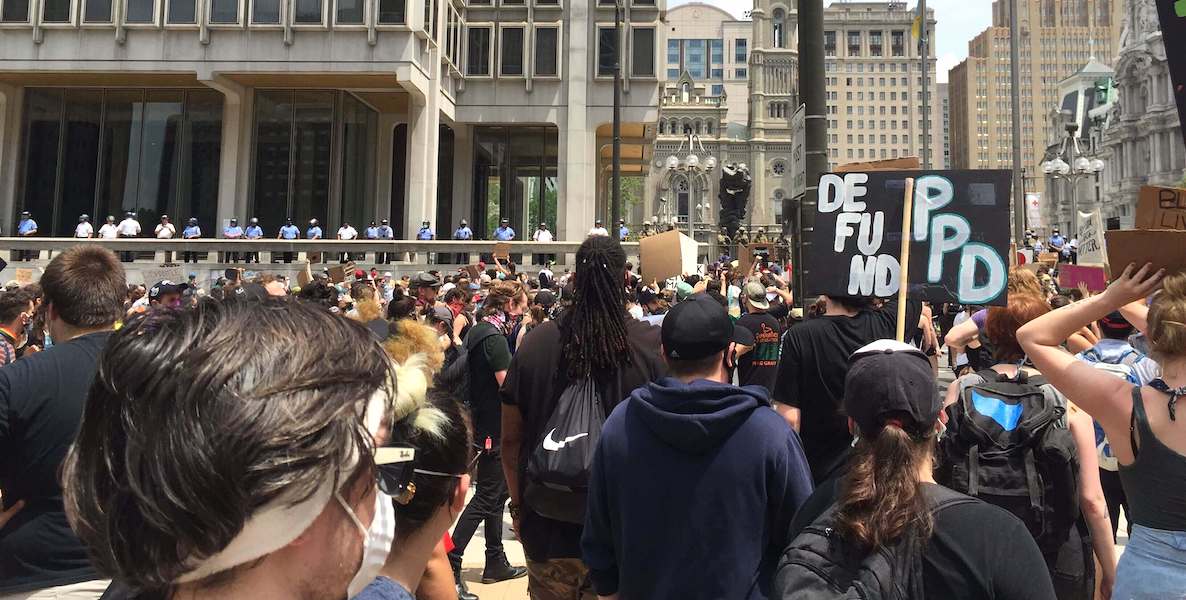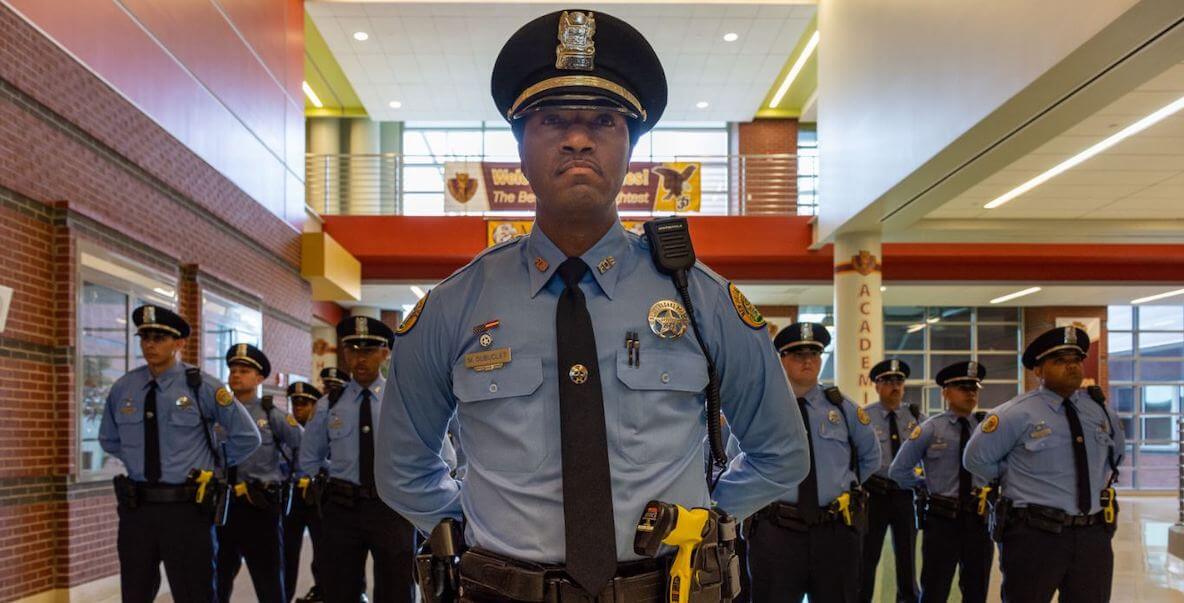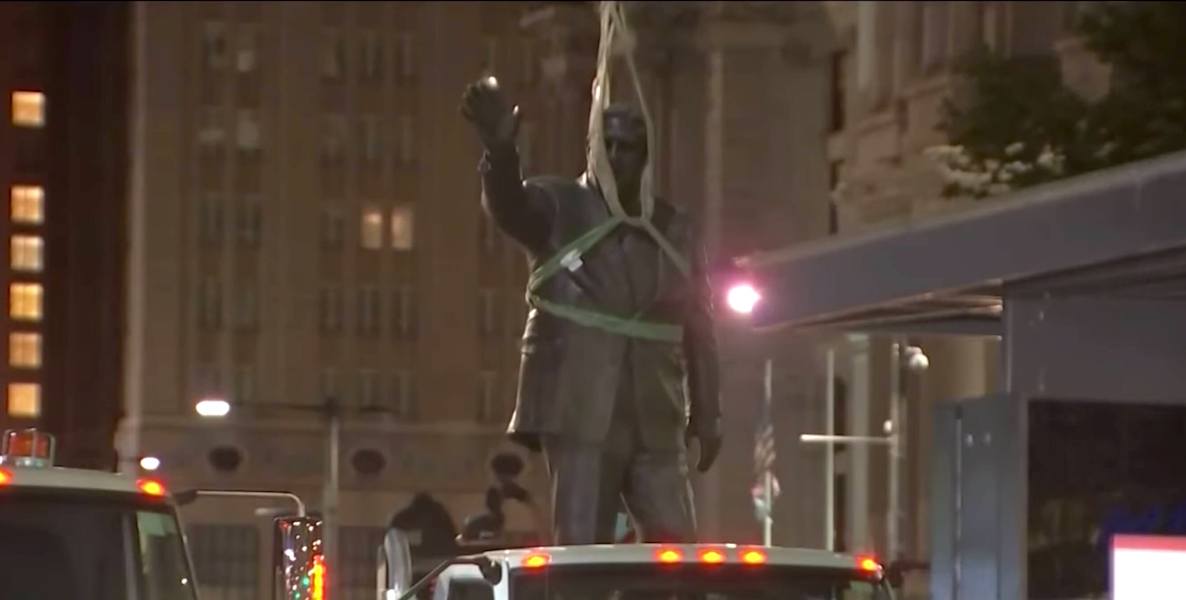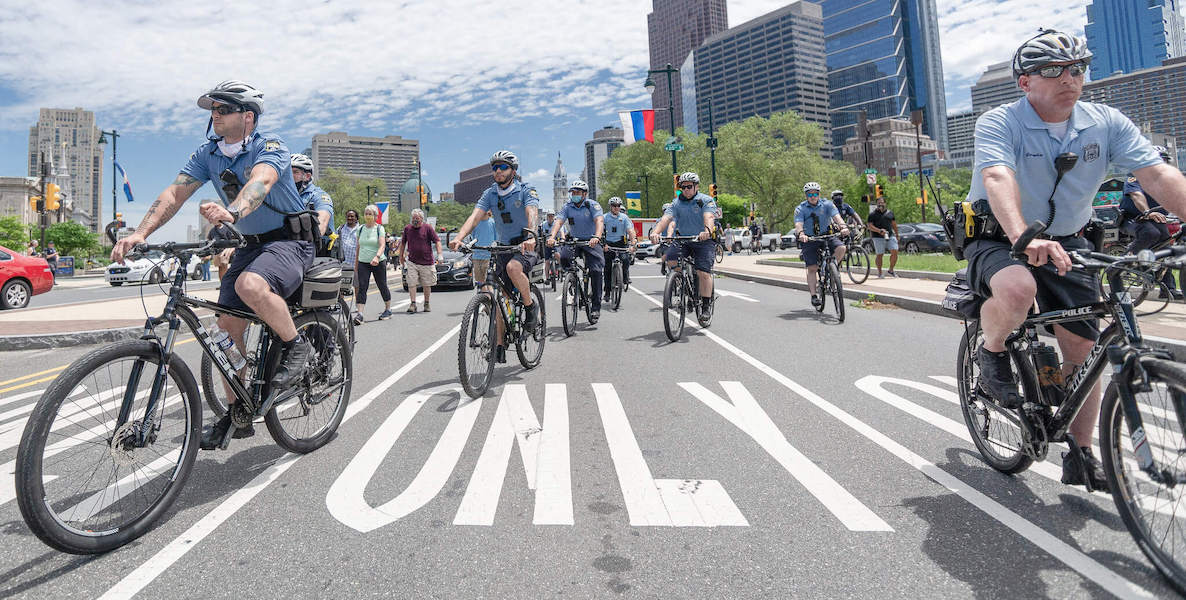The protest phase of the George Floyd tragedy has slowed down to a temporary simmer—until the next tragedy. In the meantime, the public conversation is now stuck and meandering, trapped between a rage moment and a need to implement. Something. And soon.
On one side are well-meaning, but somewhat powerless House Democrats who were the first to hit the scene with a package of reforms. But, they won’t be able to get it through the other side of hard headed policymakers, especially Republicans in charge of the White House, U.S. Senate and a majority of state legislatures who don’t want any of this. Screaming to the left, and taking up a bit of oxygen, are those with the questionable messaging choice of “Defund the Police.”
There are too many skeptics on both sides of that message because it sounds so absolutist and final. If you mean “defund” then you mean defund or no money or funding being channeled into police. Next natural question: Then how does a police department exist if it has no money to operate?
Is the absence of police a chance you want to take—especially in a city like Philadelphia? Homicides are, last check, 24-percent more than where they were last year. Violence overall increased by an astounding 41 percent—just in the past 28 days. So, if there’s no operational police force, what do we propose we do about problems like that?
But, because we’re trapped in a hamster-wheel cycle of polemic acrobatics—pro-police law-and-order folks on one side butting heads with anti-racist police-stop-killing-us folks on the other—we have yet to shift into a deeper conversation about how policing in America could be better.
We could start by “putting everything on the table,” as retiring police Captain Sonia Pruitt, chairwoman of the National Black Police Association, put it during a segment on WURD’s Reality Check. “It’s time we think outside the box about what policing is, even if that means disbanding a police department. We have an opportunity here to reimagine what our police departments should look like.”
In the last couple weeks, policymakers of all stripes have been rolling out all sorts of “police reform” proposals—from the Minneapolis City Council “dismantling police” to Congressional Democrats and Senate Republicans in Washington now sparring with competing plans.
![]() In Philly, Mayor Jim Kenney wants to look transformative on policing while he continues to get the soft no-oversight treatment after unprecedented mass tear-gassing, highway herding and rubber-bulleting of protesters in Center City. (Would Philly’s last three Black mayors—including the one who dropped a bomb on a Black neighborhood 35 years ago—have ever slithered their way out of that?)
In Philly, Mayor Jim Kenney wants to look transformative on policing while he continues to get the soft no-oversight treatment after unprecedented mass tear-gassing, highway herding and rubber-bulleting of protesters in Center City. (Would Philly’s last three Black mayors—including the one who dropped a bomb on a Black neighborhood 35 years ago—have ever slithered their way out of that?)
Meanwhile, the question remains as to whether any of these proposals are truly groundbreaking or just performative. Many seem more tactical and operational, subtle and not-so-subtle tweaks at police training, hiring and conduct protocols, not a fundamental or philosophical rewiring of policing, particularly at the frontend.
A concept such as disarming the police—while largely working in other modern societies like England and Iceland—might seem great on its face. But, would that be realistic without comprehensive gun control in a highly armed, Second Amendment-hugging country like the United States where gun culture is supreme?
Mandatory residency requirements are something that keeps popping up. But even that’s beginning to get a much more skeptical look from experts and advocates who have not seen the research to support it.
Instead, we should be looking much more at preventive measures. What about keeping angry, racist or unqualified officers from being in that kind of position where they are armed and arbitrarily dispensing justice to begin with? What about stringent hiring practices, advanced education, and liability insurance? These don’t sound sexy in the broader public debate, but they are pillar issues.
Here are some ideas:
Rebrand the Police
It could all start with something as simple, but profound, as a rebrand. The origins, or etymology, of the term “police” itself is brutally clinical and technocratic. It’s something that’s not even rooted in community protection at all, but focused primarily on maintaining order—a short, originally French word for “administration of public order, law-enforcement.” The first uses and applications of this term suggest nothing associated with protecting residents, citizens or the public good, but of governments obsession with protecting public property.
The first “police” in England were created to protect Port of London merchandise; the first police in France were merely civil administrators. In America, they were “slave patrols,” specifically designed to track and hunt down enslaved Black people attempting to gain their freedom. Again: It’s always been about an obsession with things and, unfortunately, human beings viewed as property.
Another problem, as Georgetown University Law Professor Paul Butler put it during a PBS News Hour discussion on the recent fatal shooting of Rayshard Brooks, “… is [that] too many cops think of themselves as warriors. Guardians is the better model, and so if we had that culture change …. we might see the kind of policing that citizens respect.”
If you’re police and you want to keep on oppressing Black people you patrol, well then that’s on you—because, with professional liability insurance, you’ll be financially on the hook for every misdeed or violence complaint.
The kind of new, modern and authentically multicultural public safety model should really begin with a national standard, versus the patchwork of policing standards which vary throughout a vast, messy network of 18,000 law enforcement agencies. Maybe if policing was a more federalized operation commanded by a consensus national standard, in contrast to the confederation patchwork we have now—where good and bad policing is determined by the zip code you live in—we wouldn’t have half these problems.
Just flipping definitions and eliminating the concept of “police” to mean something entirely different (and less terrifying) could be a fundamental game changer in how policing is approached. This includes how current police officers view themselves. Something like “guardians” or “public safety officers” could prompt a better model and something more proactively “public safety” than adversarial and reactionary law-enforcing.
We instinctively know these events will happen over and over again, even if tactical changes are made in police procedure, like banning chokeholds or wearing body cams. These are merely window dressing fixes that buy police, police unions and policymakers time while they hurriedly look for something to calm noisy protesters down. In the meantime, vicious cops still find another jurisdiction to settle into and the cycle starts all over again, or what the Yale Law Journal recently dubbed the “Wandering Officer”.
Hire better-educated officers
A 2013 Bureau of Justice Statistics analysis found that 84 percent of local police departments just required a high school diploma for employment. Only 15 percent required either some college, a two-year degree or a four year degree; just 1 percent of local police agencies required a full 4-year degree. In Philly, the fourth largest municipal police force in the country, former police Commissioner Charles Ramsey eliminated the college requirement citing trouble with recruiting new officers. So, now, it just helps officers get ahead if they’ve got a detective or commander track in mind.
However, in addressing the growing problem of police violence and brutality, shouldn’t we revisit that question: Does the education level of a cop influence how violent they can be?
A 2010 Michigan State University study attempted to answer that question and came to an interesting conclusion: “College education does, however, significantly reduce the likelihood of force occurring. Results may be due to the amount of discretion officers exercise in pursuing these behaviors.”
Law enforcement officers, particularly those in densely populated urban and suburban areas, patrol tense pockets of poverty that should require, at the very least, a level of intellectual awareness or cognizance. You would think cops should be among the first thoroughly versed in the various social, political and economic issues they’re faced with each day. Mandating advanced curriculum credit hours on everything from food insecurity to economic disparities and, more importantly, the rather challenging histories of marginalized populations in the United States could be rather useful, too.
Major academic institutions in Philly could step up to offer comprehensive public safety studies programs in partnership with the troubled local police agency. One concept: as a “Payment in Lieu of Taxes,” universities could offer a citywide in-kind contribution to recruits and current officers. Temple University seemed off to a decent start with its “Police Officers in Service Training,” but it’s too small for the big moment happening right now. Maybe we should look to expand that.
Do better screening
But, what about hiring standards to avoid a lot of this trouble in the first place? It doesn’t seem like those standards are all that rigorous if this keeps happening all the damn time.
“I’m not so much worried about whether or not an officer has a degree,” argues Pruitt. “We need better psychological screening to determine if we should even trust them with such a heavy responsibility.”
![]() She could be on to something. A larger problem is white extremist groups quietly infiltrating law enforcement—as well as smaller scale individuals with white nationalist sympathies (something the Philadelphia Police Department has had its own trouble with). If that’s a national problem that even prompted the Feds to take a look, why aren’t law enforcement agencies engaged in much heavier screening to root out openly racist hires?
She could be on to something. A larger problem is white extremist groups quietly infiltrating law enforcement—as well as smaller scale individuals with white nationalist sympathies (something the Philadelphia Police Department has had its own trouble with). If that’s a national problem that even prompted the Feds to take a look, why aren’t law enforcement agencies engaged in much heavier screening to root out openly racist hires?
Nearly 90 percent of police agencies have some form of psychological testing—but, there’s no deep dive evaluation and screening. It’s not the kind of screening, for example, that can detect hostile behavior or aggressive tendencies in a potential hire. Clearly, it’s not working. Any more serious psychological screening is taking place only after an officer has been hired and been involved in a major incident. By that time, it’s too late.
Get insurers involved
What might not be too late, though, is if an officer understands from the jump that their ongoing bad behavior or tendency towards violence against unarmed citizens is professionally and economically unfeasible for them. This is where cities, whether it’s Philly or Minneapolis, could start exploring required individual liability insurance for officers as a way to gradually exorcise bad culture policing.
If you’re police and you want to keep on oppressing Black people you patrol, well then that’s on you—because, with professional liability insurance, you’ll be financially on the hook for every misdeed or violence complaint. Victimized citizens won’t just be holding the employing government liable, but the individual officer, too. That can get pretty expensive over time—for both officer and the insurance company that ultimately drops them, thereby forcing so-called “bad apples” to resign from policing altogether because they can’t find insurance.
Small to midsize cities have already been toying with this for some time, and showing measurable results. “While much attention has been paid to the issue of police misconduct —with 14 cities pursuing consent decrees with the Department of Justice—what is less well known is how liability insurers can put a private-sector spin on reform, by demanding structural changes in the police departments that they cover,” writes Rachel Boyle in The Atlantic.
What about keeping angry, racist or unqualified officers from being in that kind of position where they are armed and arbitrarily dispensing justice to begin with?
University of Chicago Law School’s John Rappaport laid out that case in a little known, but crucial piece of research in the April 2017 Harvard Law Review.
“When the insurer assumes the risk of liability, it also develops a financial incentive to reduce that risk through loss prevention,” observes Rappaport.
“By reducing risk, the insurer lowers its payouts under the liability policy and thus increases profits. An effective loss-prevention program can also help the insurer compete for business by offering lower premiums. In other words, an insurer writing police liability insurance may profit by reducing police misconduct. Its contractual relationship with the municipality gives it the means and influence necessary to do so—to ‘regulate’ the municipality it insures. In fact, the insurer may be better positioned than the government to reform police behavior.”
We’ve seen this work in cities much smaller than Philadelphia, but the results are worth exploration: there have been case studies in smaller cities in Illinois, Pennsylvania, Ohio, Tennessee, Louisiana, California and Wisconsin where the police departments have found themselves at the mercy of, yes, insurance companies. Reducing police violence is not just a moral or public policy imperative, it’s a mandated business model. Insurers can’t lose money and police departments don’t want to become non-existent.
These are strategies that create an environment of both incentives and disincentives, that make the policing climate difficult for malevolent officers. For too long, we’ve put the onus of fixing the problem on the residents who’ve been hurt as a result of bad policing actors and the policymakers trapped between political calculi and constituent outrage. But what we keep missing is how we keep this from getting to where we always end up.
Prevention is, indeed, the best medicine. In the case of policing, it may not be as hard as it looks.
Charles D. Ellison is executive producer and host of “Reality Check,” which airs 11 a.m. to 1 p.m. Monday through Thursday on WURD Radio (96.1FM/900AM). Check out The Citizen’s weekly segment on his show every Wednesday at noon. Ellison is also principal of B|E strategy. Catch him if you can @ellisonreport on Twitter.
Photo courtesy Saundi Wilson / Flickr


